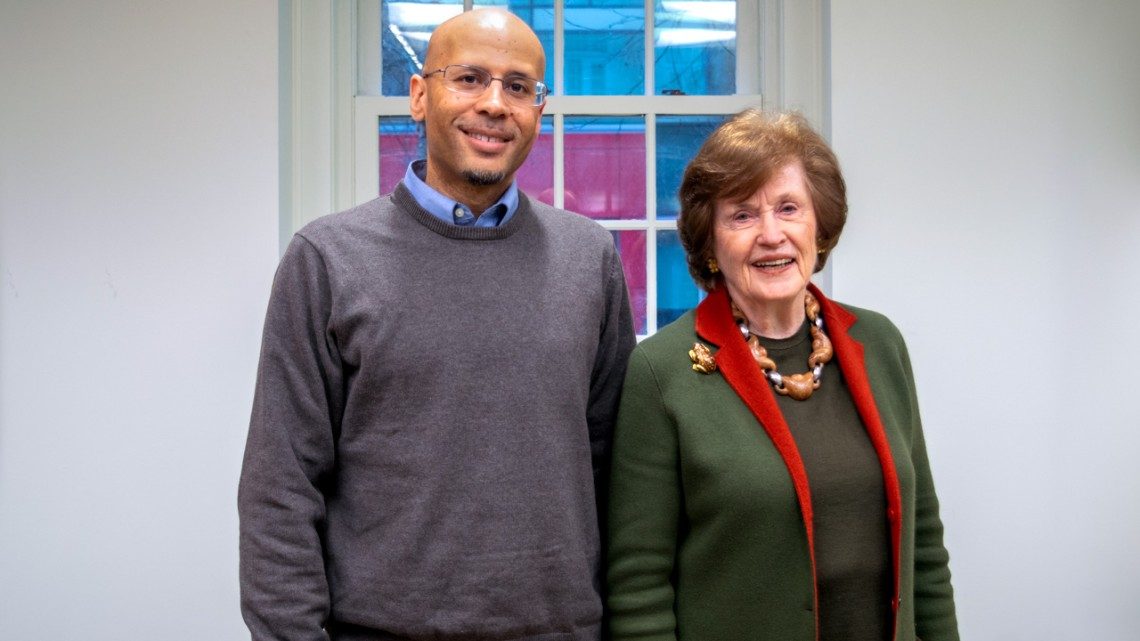Jessica Chen Weiss is often asked to share her deep knowledge of China with stakeholders at the highest echelons of the public and private sectors—including government, business, the media, and academia.
As relations between the United States and China have deteriorated over the past few years, Weiss, who is the Michael J. Zak Professor for China and Asia-Pacific Studies, has been called upon to provide expert testimony to the House Intelligence Committee and for the House Foreign Affairs Subcommittee on Asia and the Pacific. She has helped brief the US Indo-Pacific Command, the Joint Chiefs of Staff, the Joint Artificial Intelligence Center at the Pentagon, the Academy for Defense Intelligence and Joint Military Intelligence Training Center, and members of Congress and their staff.
“It has been an honor to contribute my expertise, in the hopes that a more accurate understanding of China will reduce the risk of an all-out confrontation,” she observes.
Weiss believes that her voice is helping to “right-size” the current situation and correct the perception that conflict between the US and China is inevitable. “The public conversation has become increasingly shrill and insufficiently grounded in a rigorous evaluation and understanding of Chinese politics and decision-making,” she notes.
Weiss penned two recent op-eds—a Foreign Affairs essay, “Don’t panic over Taiwan,” and an op-ed in the New York Times, “Even China does not believe its own bluster” in which she tried to calm exaggerated fears and reframe the US-China conversation through analysis based on her own and others’ academic research.
“These opinion pieces seek to dispel two common misperceptions: first, that China seeks to replace the US as the dominant global power, and second, that domestic troubles mean that China is likely to attack Taiwan sooner than later,” Weiss explains.
She regularly shares her views with a wide range of national and international audiences—such as at the recent Aspen Ideas Festival, where she served as a panelist addressing the “Wicked Problem: The Challenge of China.”
Weiss also served as an editor at the Washington Post Monkey Cage, where she helped publish more than 150 pieces by political scientists, historians, sociologists, and legal scholars—to enrich and inform our understanding of China and Asia, as well as other regions and topics.
“At a time when facts and reason are under assault, I am proud of the work that the Monkey Cage editorial team has done,” she says. During its run at The Washington Post, which ended last year, “The Monkey Cage was the principal venue for political scientists to publish research-informed analysis of developments in the news, with a strict prohibition on advocacy or op-ed language.”
Weiss came to Cornell in 2015. She teaches international relations and Chinese politics and foreign policy in the Government Department and Levinson China and Asia-Pacific Studies program (which she also directs). She enjoys working with her undergraduate students—weaving in active learning, such as role-playing simulations, podcast recordings at the Cornell Broadcast Studio, and structured blog posts in the style of the Monkey Cage into their coursework.
As director of graduate studies in the Government Department, Weiss expanded the new student orientation to include mental health and diversity trainings, spearheaded the department’s pandemic response, and helped expand the department’s depth of expertise in global economics and racial politics through two new hires.
“The killings of George Floyd, Breonna Taylor, and others occasioned an opportunity for the department to renew and restate its commitment to combating racism and its living legacy,” she says, adding, “I am proud not only of our success in making these hires, but also of the tenor and quality of the search process and deliberations.”
Weiss is looking forward to building on Cornell’s strengths in Chinese politics and Asia-Pacific studies and continuing to share her insights on US-China policy with her students and the broader public. She is grateful for her endowed professorship—which, she says, has helped establish her as “a highly respected and valued academic, as well as a public intellectual.”
“My work and research seek to inject greater rigor and reason into our collective understanding of Chinese politics and foreign policy,” she says, “which is so important to crafting effective US policy toward China and the world.”





